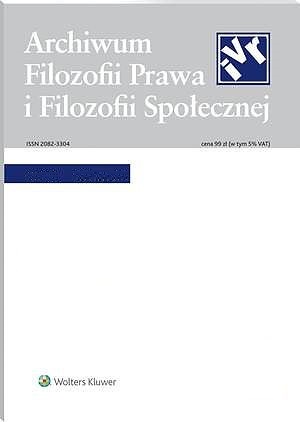Judges’ Virtues and Vices: Outline of a Research Agenda for Legal Theory
Judges’ Virtues and Vices: Outline of a Research Agenda for Legal Theory
Author(s): Tomasz WidłakSubject(s): Law, Constitution, Jurisprudence, Ethics / Practical Philosophy, Political Philosophy, Philosophy of Law, Philosophy of Law
Published by: Stowarzyszenie Filozofii Prawa i Filozofii Społecznej – Sekcja Polska IVR
Keywords: virtue; virtue ethics; aretaic theory; judicial virtues; juristic virtues; virtue jurisprudence; judicial character
Summary/Abstract: This article focuses on the issue of applicability of virtue theory to legal theory in civil-law (statutory) jurisdictions and suggests research areas and problems in that respect. The author starts with an assumption that the notion of “virtue” and virtue ethics should be used for the purposes of legal theory starting from references to judicial ethics and normative theory of judicial decision-making. This approach looks especially promising for the purpose of systematizing the chaotic moral language that is being currently used in Poland in reference to judges, their skills, and qualities of their character, which in turn may lead to formulating an explanatory and normative theory of the judicial role that better addresses the observable deficiencies of legal deontology. The author suggests research that could proceed from interpretatively uncovering what are believed to be specific judicial virtues and vices, considering different aspects of the wider Polish and European legal culture of civil law countries (included but not limited to legal and ethical standards, public discourse, legal and other literature, historical and fictional examples, and role models). With respect to judicial ethics, existing virtue theories, including non-eudaimonistic ones, may be examined for the purpose of identifying the model of virtue best suited to the particular nature of the judicial profession. The aretaic (rather than deontological or consequentialist) perspective may enable legal scholarship to take a new path in the debate on the status and qualities of the judiciary, including the problems relating to judicial independence and the selection of candidates for judicial offices.
Journal: Archiwum Filozofii Prawa i Filozofii Społecznej
- Issue Year: 20/2019
- Issue No: 2
- Page Range: 51-62
- Page Count: 12
- Language: English

